
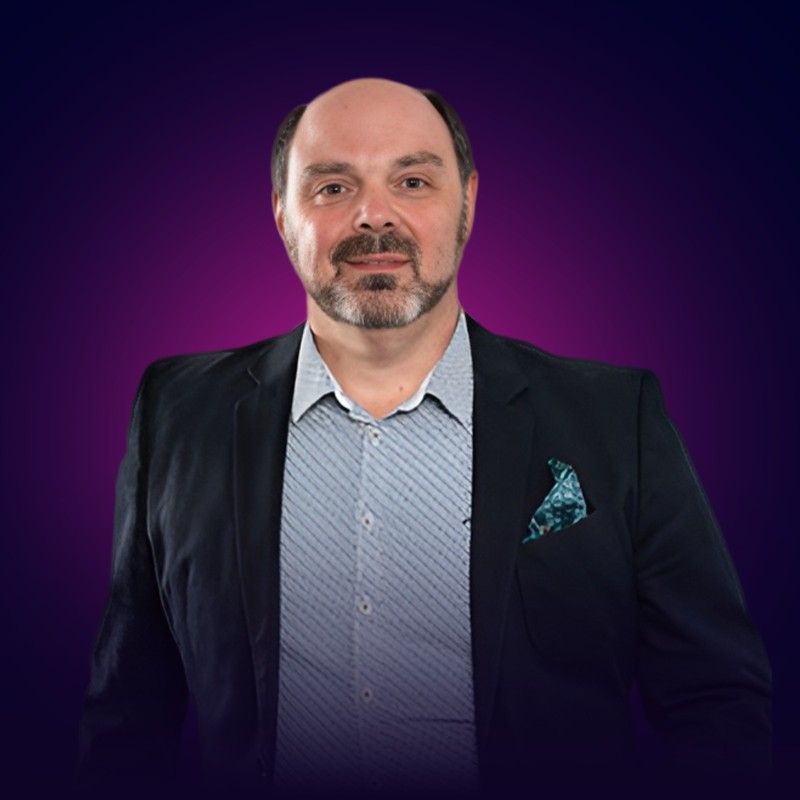
Morris Misel – Global Business Futurist
The futurist who makes tomorrow make sense. 40+ years, 160+ industries, 2,800+ stages. Creator of Immediate Futures™, HUMAND™, and Decision Trust Zones™. Trusted by Visa, Mastercard, Siemens, Sealy, and global media.
Why event organisers stop searching when they find Morris Misel:
* Global authority: 40+ years, 160+ industries, 2,800+ keynotes and workshops worldwide.
* Proven clients: Visa, Mastercard, Siemens, Simmons, Serta, Sealy, plus governments and associations.
* Unique foresight frameworks: Immediate Futures™, HUMAND™ (future of work), PTFA™, Ripple Effects, Decision Trust Zones™.
* Recognised voice: Heard by millions each year on RTHK, Sky TV, Sunrise, and global media.
* Practical clarity: Translates weak signals and horizon shifts into immediate actions leaders can take.
The promise:
Misel doesn’t deal in hype. He makes disruption clear, human, and usable. His sessions are alive with stories, humour, and foresight that sticks, leaving every audience knowing what to watch, what to question, and what to do next.
That’s why the search stops with Morris Misel. He makes the future not just understandable, but inhabitable and gives every audience the clarity and confidence to Choose Forward.
Available For: Advising, Authoring, Consulting, Influencing, Speaking
Travels From: Melbourne, Australia - but globally available
Speaking Topics: Future of Work Leadership in an AI-Shaped World Digital Transformation & Strategic Foresight
| Morris Misel | Points |
|---|---|
| Academic | 20 |
| Author | 90 |
| Influencer | 37 |
| Speaker | 133 |
| Entrepreneur | 20 |
| Total | 300 |
Points based upon Thinkers360 patent-pending algorithm.
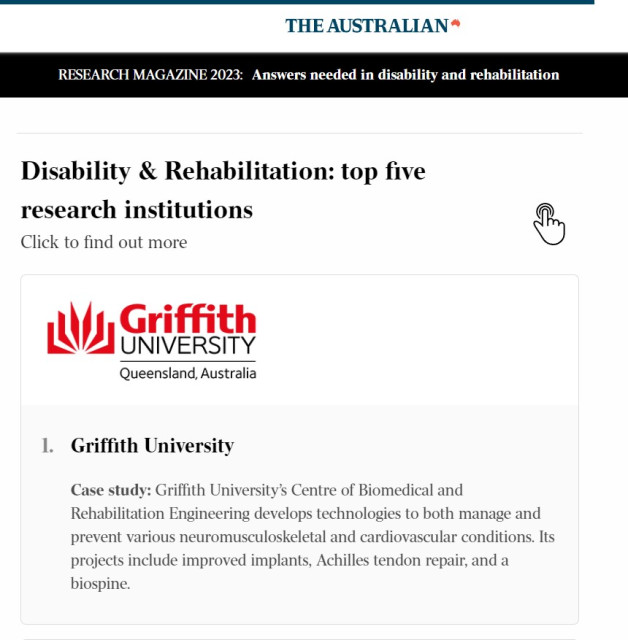 Foresight and the Future of Higher Education
Foresight and the Future of Higher Education
Tags: Education, Future of Work, Health and Wellness
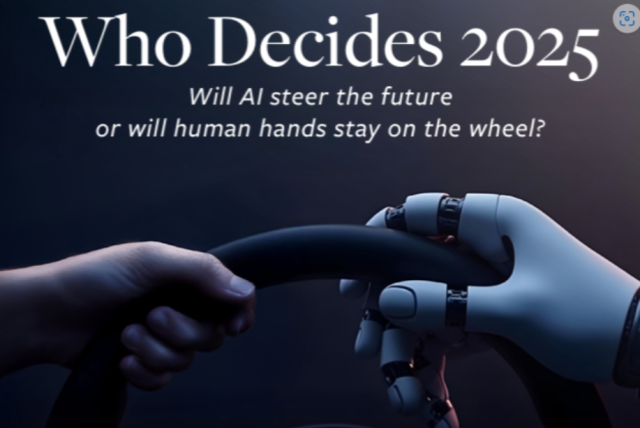 {Podcast} Who Decides 2025: Global CEOs Reveal Where AI Can (and Can’t) Be Trusted to Decide
{Podcast} Who Decides 2025: Global CEOs Reveal Where AI Can (and Can’t) Be Trusted to Decide
Tags: AI, Innovation, Leadership
Tags: Digital Disruption, Future of Work, Leadership
Tags: Digital Disruption, Future of Work, Leadership
Tags: Digital Disruption, Future of Work, Leadership
Tags: Digital Disruption, Future of Work, Leadership
Tags: Digital Disruption, Future of Work, Leadership
Tags: Digital Disruption, Future of Work, Leadership
Tags: Digital Disruption, Future of Work, Leadership
Tags: Digital Disruption, Future of Work, Leadership
Tags: Digital Disruption, Future of Work, Leadership
Tags: Digital Disruption, Future of Work, Leadership
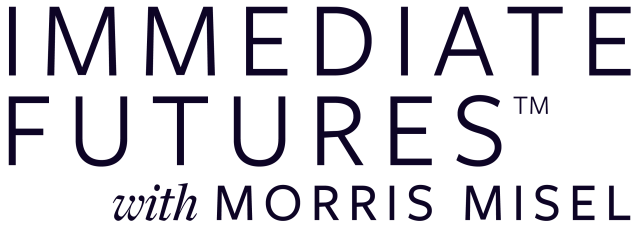 Who Decides? Human vs AI Decision-Making Comfort 2025
Who Decides? Human vs AI Decision-Making Comfort 2025
Tags: AI Ethics, Future of Work, Leadership
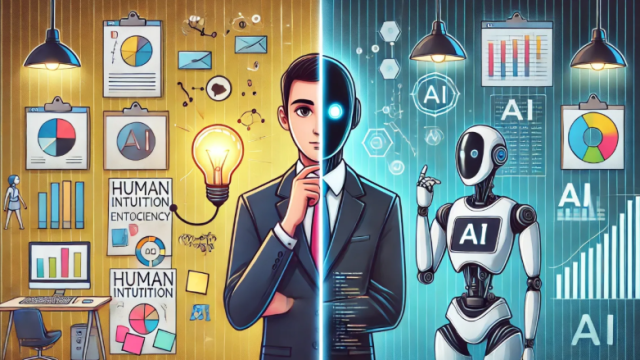 Redefining Purpose: The Human Role in an AI-Driven Workplace
Redefining Purpose: The Human Role in an AI-Driven Workplace
Tags: Innovation
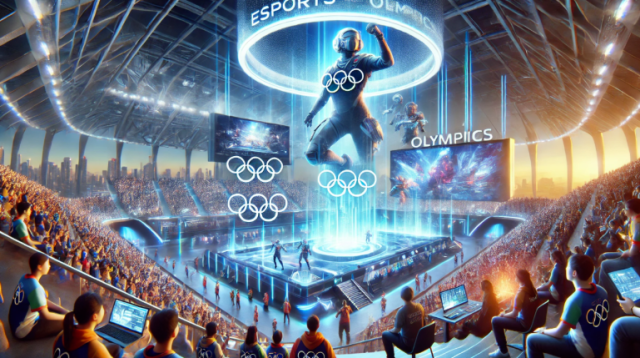 eSports Joins the Olympics: What to Expect in 2025
eSports Joins the Olympics: What to Expect in 2025
Tags: Digital Transformation, Future of Work, Leadership
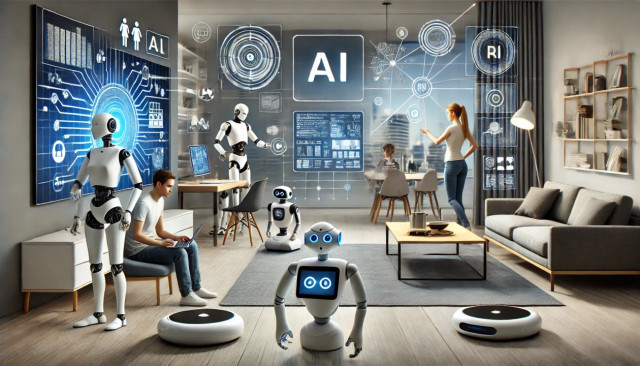 Home Robots Revolutionise Daily Living
Home Robots Revolutionise Daily Living
Tags: Digital Transformation, Future of Work, Leadership
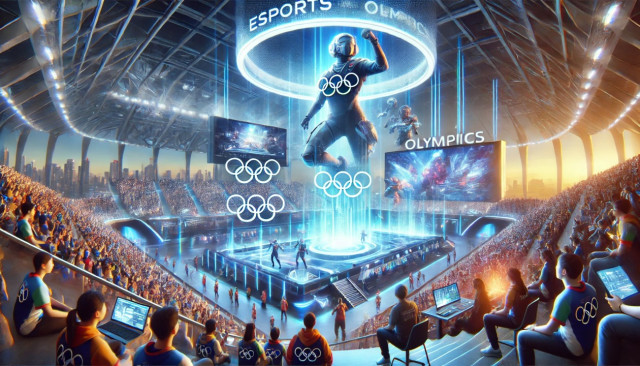 {Podcast} Esports in the Olympics: A New Era of Competitive Gaming
{Podcast} Esports in the Olympics: A New Era of Competitive Gaming
Tags: Digital Transformation, Future of Work, Leadership
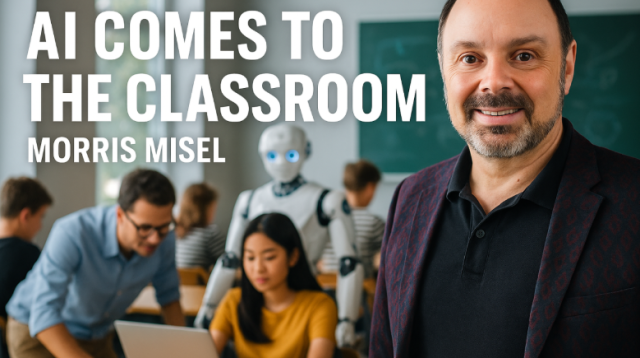 If Schools Can Tame AI, What’s Your Excuse?
If Schools Can Tame AI, What’s Your Excuse?
Tags: AI, Innovation
 Before you spend another dollar, or minute, on AI, ask this first...
Before you spend another dollar, or minute, on AI, ask this first...
Tags: Digital Transformation, Future of Work, Leadership
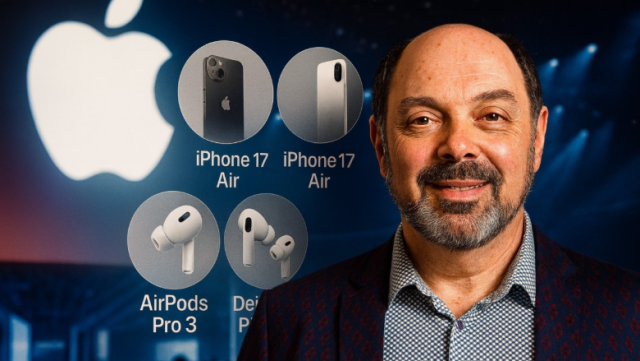 Apple’s September 2025 Event: Futures Hidden in Plain Sight
Apple’s September 2025 Event: Futures Hidden in Plain Sight
Tags: Innovation
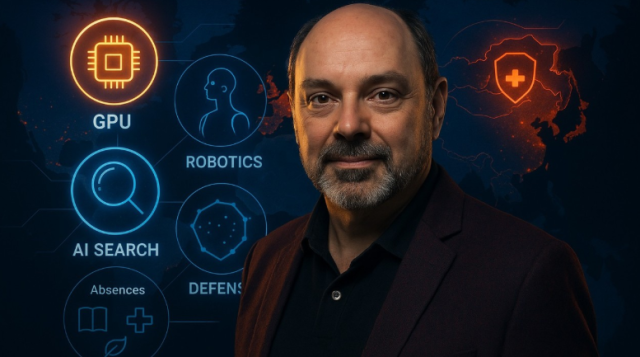 Follow the Money: What AI’s New Billionaires Really Signal About Our Future
Follow the Money: What AI’s New Billionaires Really Signal About Our Future
Tags: Innovation
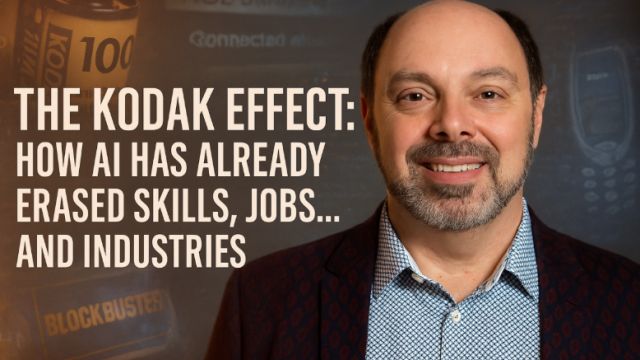 The Kodak Effect: What AI Has Already Erased
The Kodak Effect: What AI Has Already Erased
Tags: Innovation
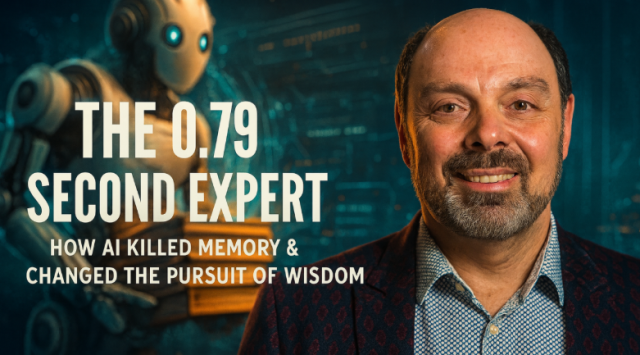 Farewell the 10,000-Hour Expert. All Hail the 0.79-Second Expert. But at What Cost?
Farewell the 10,000-Hour Expert. All Hail the 0.79-Second Expert. But at What Cost?
Tags: Digital Transformation, Future of Work, Leadership
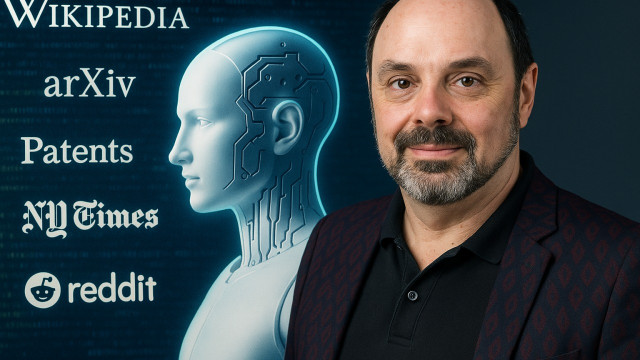 AI Doesn’t Tell the Truth. It Tells You What It’s Read.
AI Doesn’t Tell the Truth. It Tells You What It’s Read.
Tags: Digital Transformation, Future of Work, Leadership
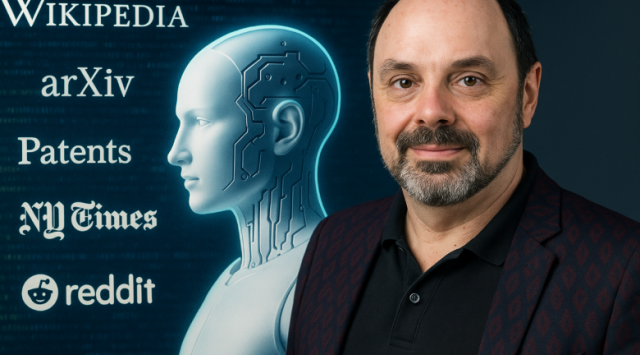 AI Doesn’t Tell the Truth. It Tells You What It’s Read
AI Doesn’t Tell the Truth. It Tells You What It’s Read
Tags: Digital Transformation, Future of Work, Leadership
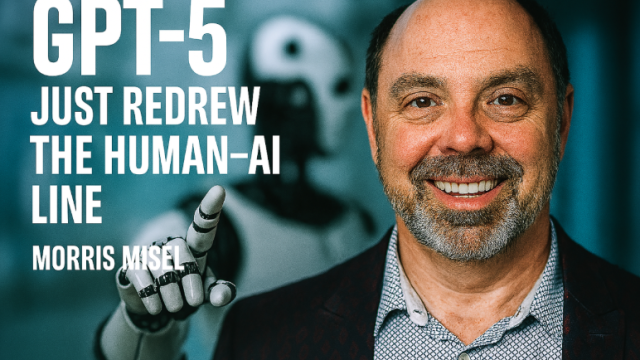 GPT‑5 has Just Arrived and it's already Redrawing the Human–AI Line
GPT‑5 has Just Arrived and it's already Redrawing the Human–AI Line
Tags: Digital Transformation, Future of Work, Leadership
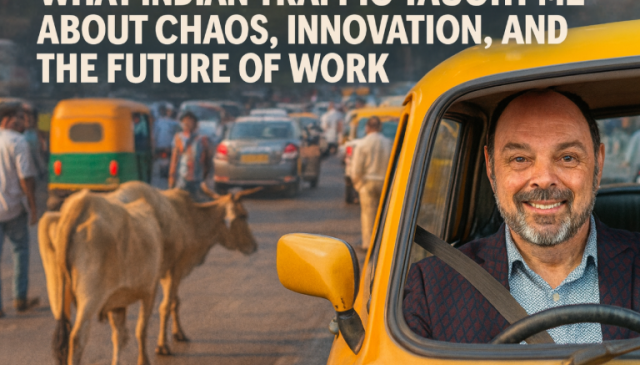 What Indian Traffic Taught Me About Chaos, Innovation, and the Future of Work
What Indian Traffic Taught Me About Chaos, Innovation, and the Future of Work
Tags: Digital Transformation, Future of Work, Leadership
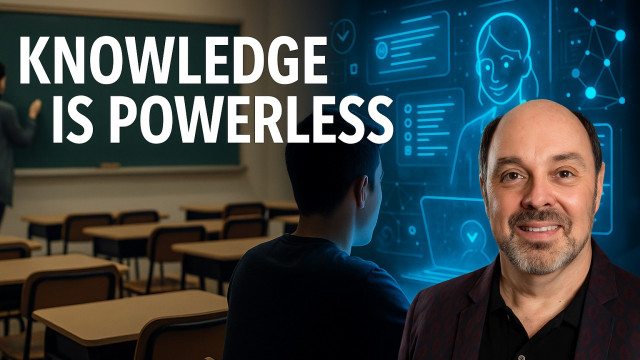 Knowledge Is Powerless
Knowledge Is Powerless
Tags: Digital Transformation, Future of Work, Leadership
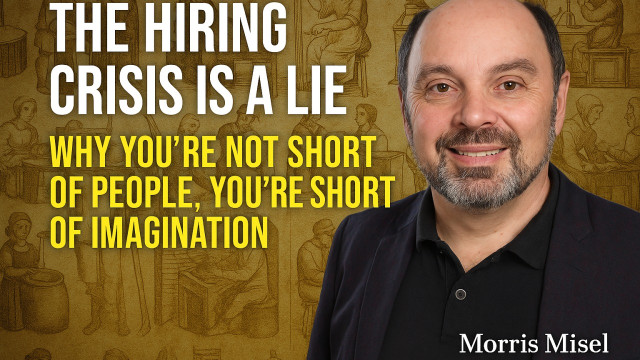 The Hiring Crisis Is a Lie. You're not short of people, you're short of imagination.
The Hiring Crisis Is a Lie. You're not short of people, you're short of imagination.
Tags: Digital Transformation, Future of Work, Leadership
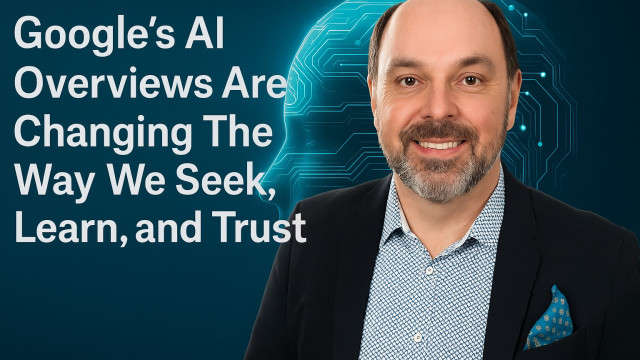 When the Answer Kills the Question
When the Answer Kills the Question
Tags: Future of Work, Leadership, Transformation
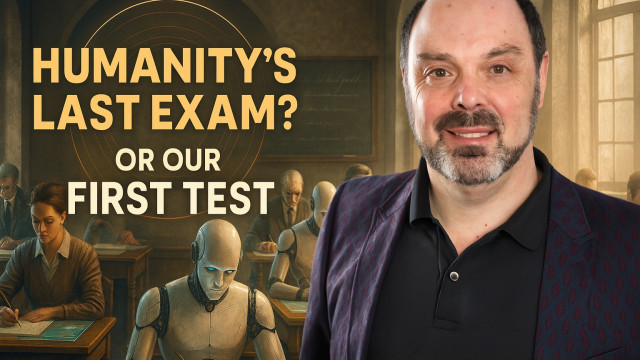 AI passed Humanity’s Last Exam. So… why do Humans still matter?
AI passed Humanity’s Last Exam. So… why do Humans still matter?
Tags: Digital Transformation, Future of Work, Leadership
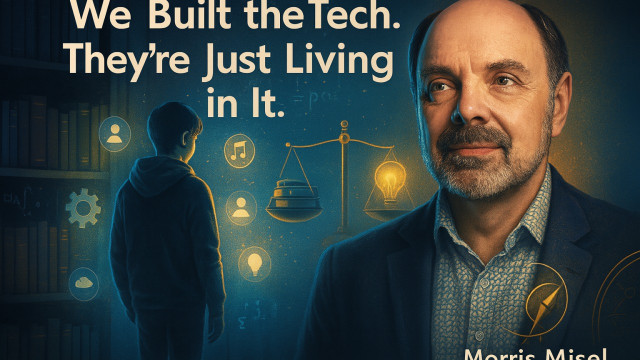 We Gave Them the Tech. Now We're Blaming Them for Using It.
We Gave Them the Tech. Now We're Blaming Them for Using It.
Tags: Digital Transformation, Future of Work, Leadership
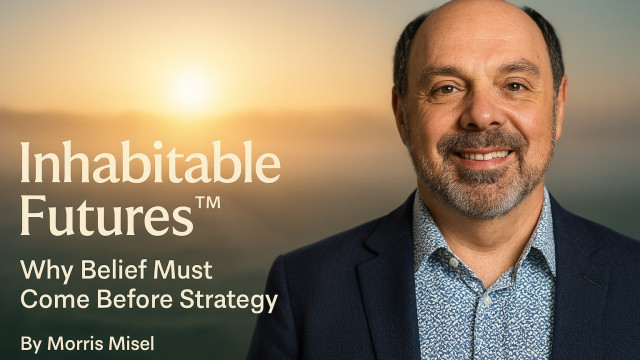 The Belief That Starts It All: Why Inhabitable Futures Must Come First
The Belief That Starts It All: Why Inhabitable Futures Must Come First
Tags: Digital Transformation, Future of Work, Leadership
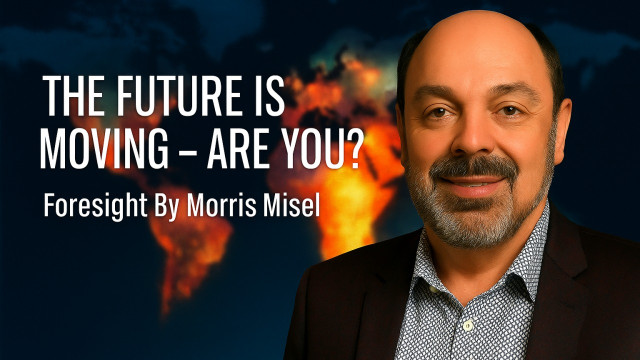 This Isn’t Just Influence, it’s the new Infrastructure of Power
This Isn’t Just Influence, it’s the new Infrastructure of Power
Tags: Digital Transformation, Future of Work, Leadership
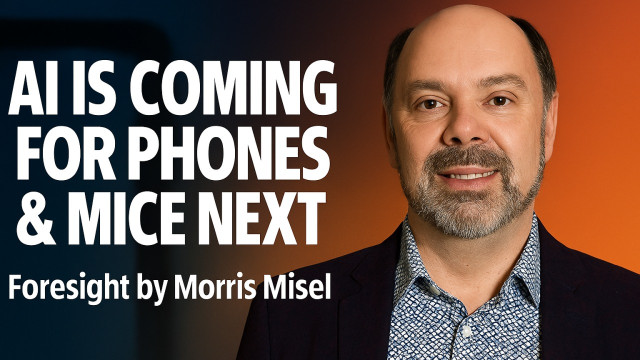 The Interface Is Dead. The Outcome Is Everything.
The Interface Is Dead. The Outcome Is Everything.
Tags: Digital Transformation, Future of Work, Leadership
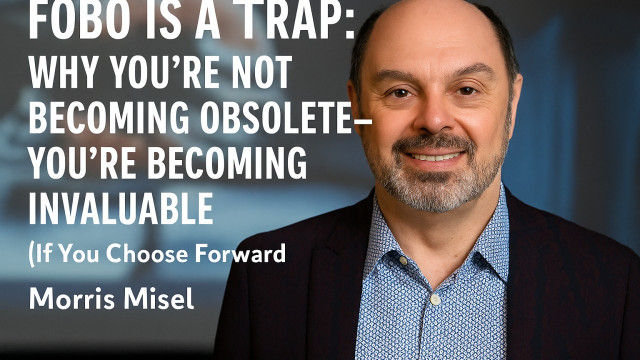 FOBO Is a Trap: You’re Not Obsolete, You’re Invaluable (If You Choose Forward)
FOBO Is a Trap: You’re Not Obsolete, You’re Invaluable (If You Choose Forward)
Tags: Digital Transformation, Future of Work, Leadership
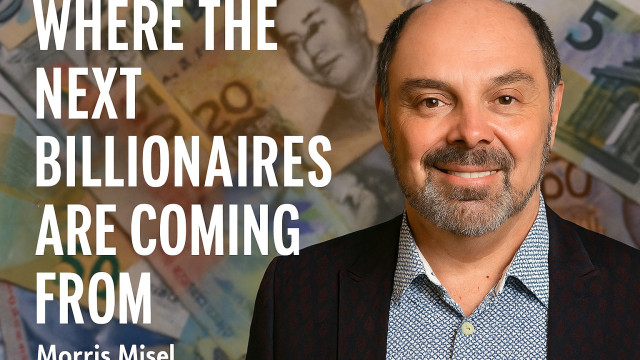 Where the Billionaires Are Heading and What That Tells Us About the Future of Work, Wealth, and Worth
Where the Billionaires Are Heading and What That Tells Us About the Future of Work, Wealth, and Worth
Tags: Digital Transformation, Future of Work, Leadership
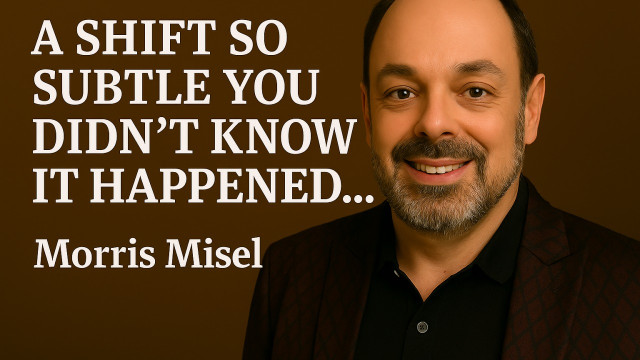 A Shift So Subtle You Didn’t Know It Happened, But It Already Changed You
A Shift So Subtle You Didn’t Know It Happened, But It Already Changed You
Tags: Digital Transformation, Future of Work, Leadership
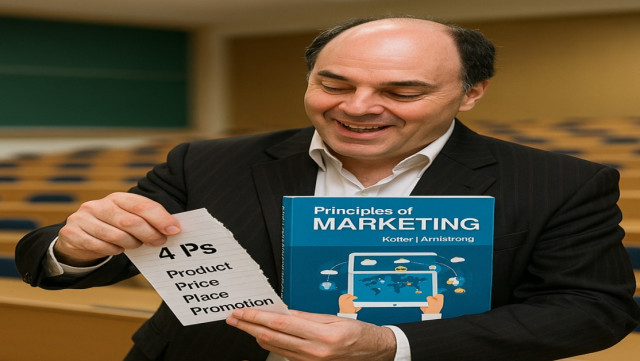 Ripple States: Why Waiting Is the New Risk
Ripple States: Why Waiting Is the New Risk
Tags: Digital Transformation, Future of Work, Leadership
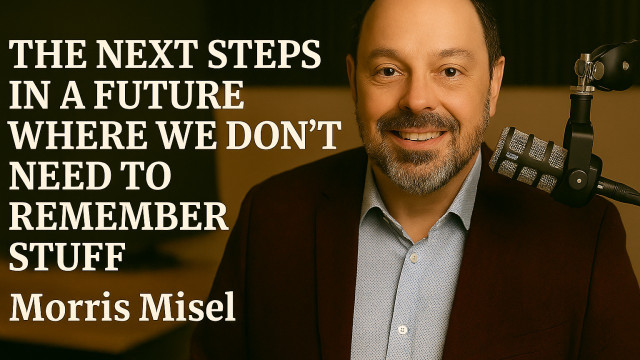 The Future of Intelligence
The Future of Intelligence
Tags: Digital Transformation, Future of Work, Leadership
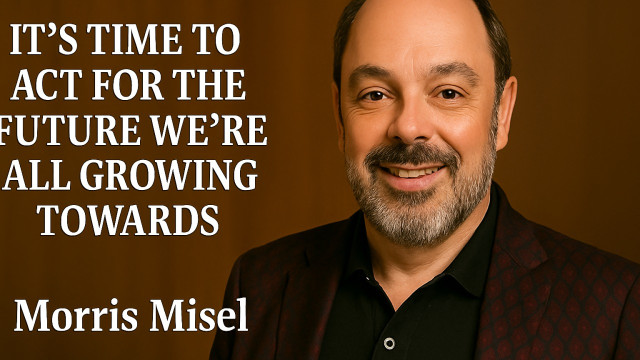 It’s Not Ageing. It’s the Next Strategic Decision You’re Avoiding.
It’s Not Ageing. It’s the Next Strategic Decision You’re Avoiding.
Tags: Digital Transformation, Future of Work, Leadership
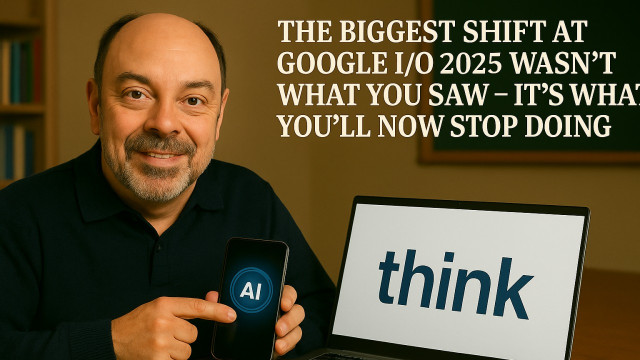 The Biggest Shift at Google I/O 2025 Isn’t What You Think
The Biggest Shift at Google I/O 2025 Isn’t What You Think
Tags: Digital Transformation, Future of Work, Leadership
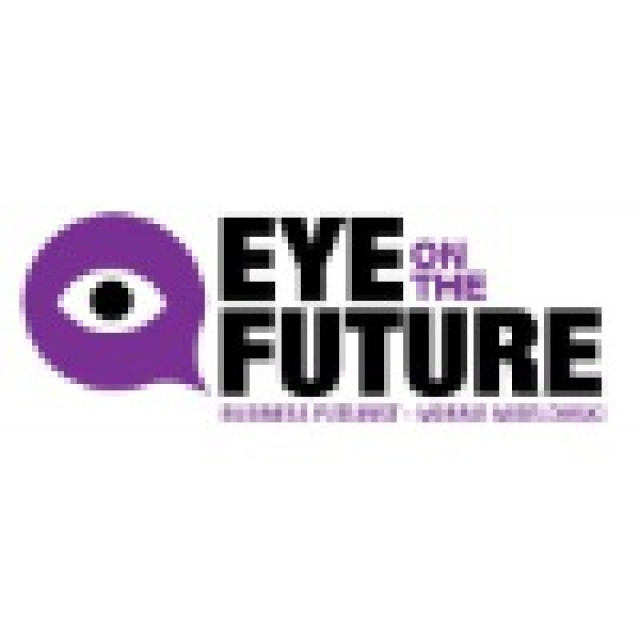 Eye on the Future
Eye on the Future
Tags: AI, Innovation
Tags: Business Strategy, Emerging Technology, Leadership
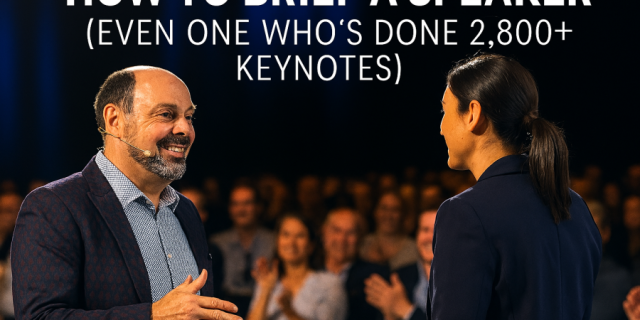 How to Brief a Keynote Speaker (and Get the Results You Need)
How to Brief a Keynote Speaker (and Get the Results You Need)
Tags: Change Management, Future of Work, Leadership
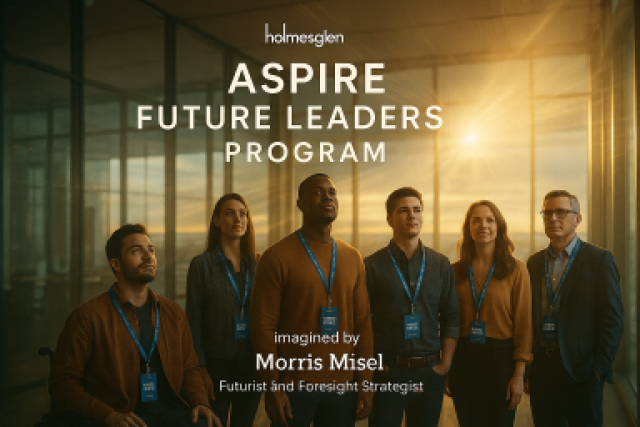 Choose Forward: Future Leadership Workshop
Choose Forward: Future Leadership Workshop
Tags: Change Management, Future of Work, Leadership
Tags: AI Ethics, Health and Wellness, Healthcare
Tags: Business Strategy, Entrepreneurship, Leadership
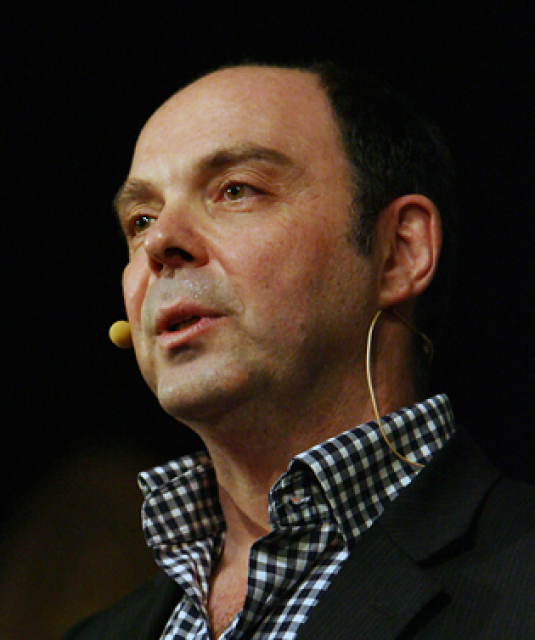 Visa – Trust & Decision Making in an AI World
Visa – Trust & Decision Making in an AI World
Tags: AI Ethics, Finance, FinTech
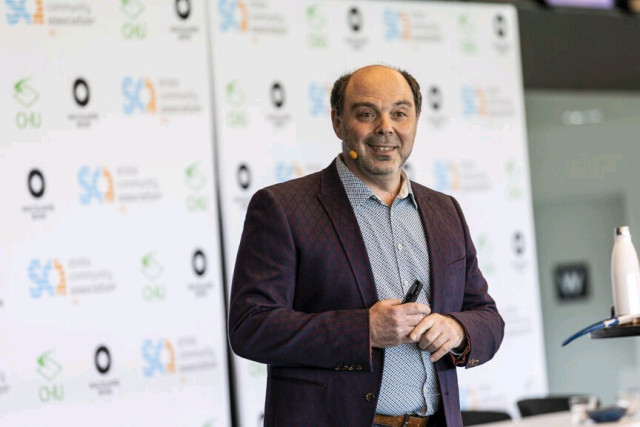 Crisis-Response Leadership and Reset Strategy
Crisis-Response Leadership and Reset Strategy
Tags: Entrepreneurship, Future of Work, Leadership
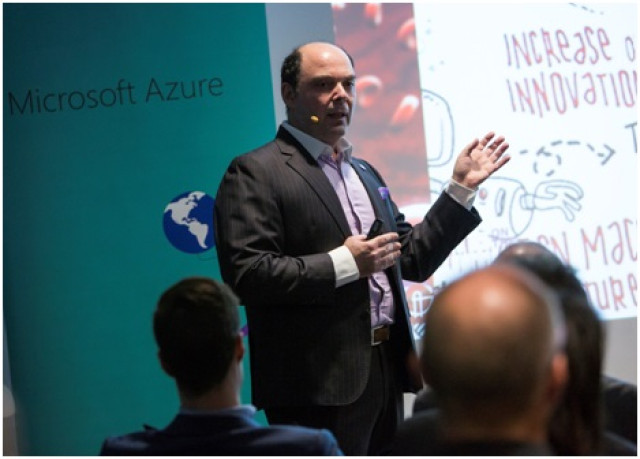 Future of Finance: Navigating Tomorrow’s Banking Landscape
Future of Finance: Navigating Tomorrow’s Banking Landscape
Tags: Digital Transformation, Finance, Future of Work
Tags: Digital Transformation, Finance, Future of Work
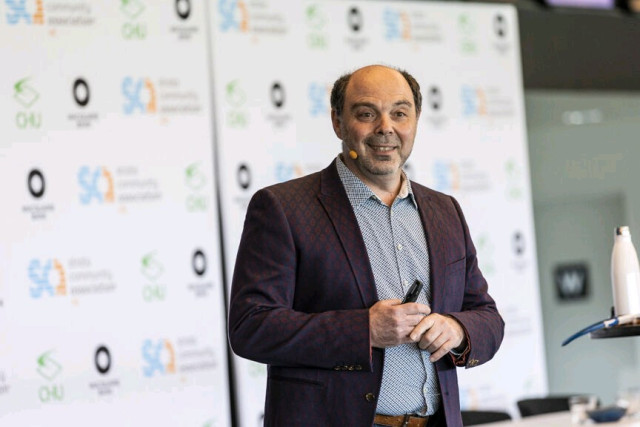 Driving the Future: Mobility, Technology, and Human Needs
Driving the Future: Mobility, Technology, and Human Needs
Tags: Innovation, Mobility, Transportation
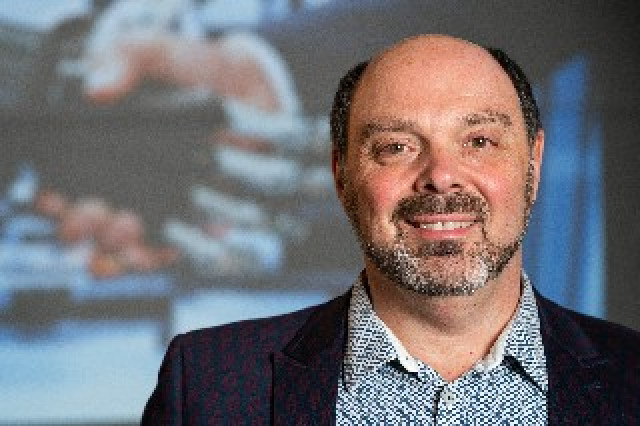 The Future of Work in Finance and Accounting
The Future of Work in Finance and Accounting
Tags: Business Strategy, Finance, Future of Work
Tags: Business Strategy, Change Management, Innovation
Tags: Customer Experience, Future of Work, Leadership

Tags: Digital Transformation, Future of Work, Leadership

Tags: Digital Transformation, Future of Work, Leadership

Tags: Digital Transformation, Future of Work, Leadership

Tags: Digital Transformation, Future of Work, Leadership

Tags: Digital Transformation, Future of Work, Leadership

Tags: Digital Transformation, Future of Work, Leadership

Tags: Digital Transformation, Future of Work, Leadership

Tags: Digital Transformation, Future of Work, Leadership

Tags: Digital Transformation, Future of Work, Leadership

Tags: Digital Transformation, Future of Work, Leadership

Tags: Digital Transformation, Future of Work, Leadership

Tags: Digital Transformation, Future of Work, Leadership

Tags: Digital Transformation, Future of Work, Leadership

Tags: Digital Transformation, Future of Work, Leadership

Tags: Digital Transformation, Future of Work, Leadership
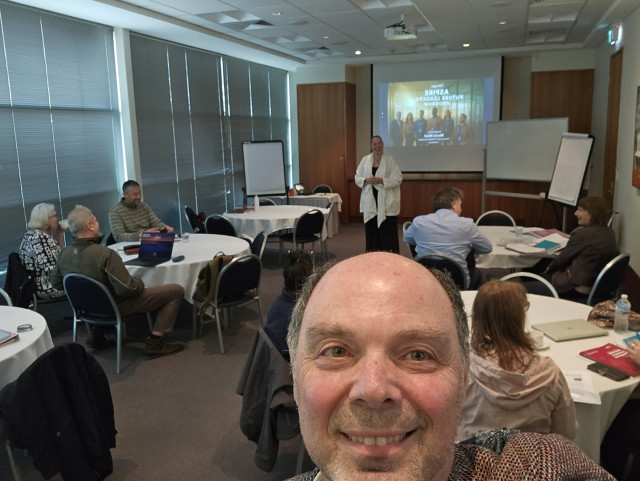 Choose Forward: Future Leadership in Education
Choose Forward: Future Leadership in Education
Tags: Education, Future of Work, Leadership
 Prediction Is a Trap. Preparation Is Power.
Prediction Is a Trap. Preparation Is Power.
Have you noticed how decisions slip away faster than they used to? One day you think you’re steering, the next you’re adjusting to choices that somehow already got made by the market, by a competitor, maybe even by the AI you quietly let into your workflow.
I sit with leaders across industries and the same thought comes up, though they rarely say it aloud: are we really leading, or just reacting?
It’s not a lack of information. You have more than enough dashboards and “future trends” decks. The problem is simpler and more uncomfortable: you can’t tell which signals matter. So you freeze, or you double down on what worked last time. That’s not foresight. That’s rehearsing the past.
I call this PTFA™ — Past Trauma, Future Anxiety. Old shocks colour new choices. Fears inflate risks. Comfort disguises itself as strategy. Until you name it, you keep circling.
And that’s why prediction doesn’t save you. It looks useful, but it stops you from preparing. Real preparation is Immediate Futures™ work looking at the edges, mapping the Ripple Effects, deciding what to do when the weak signal you noticed today becomes tomorrow’s headline.
So let me ask you:
what small signals are you ignoring because they feel absurd?
What ripple effects are quietly building while your focus stays on quarterly metrics? And which decisions have you already outsourced, to habit, to history, or to AI, without making the choice explicit?
These are uncomfortable questions. They should be. Because the leaders who thrive are the ones who live in this discomfort, notice it, and use it.
They don’t wait for predictions. They prepare.
Let’s ground this in what you already feel.
Information overload. You’re not short of data; you’re short of signal.
AI at the door. It’s not “coming.” It’s already in your systems, shaping hiring, risk, product design, even without you naming it.
Markets that don’t pause. Volatility is normal now, not the exception.
Human unease. From your graduates to your executives, everyone is wrestling with uncertainty. Anxiety bleeds into productivity. Fear shapes culture.
You know this.
It’s familiar.
But here’s the problem: when things feel this noisy, the natural instinct is to cling to prediction, to hunt for a single forecast, a trendline, something to make the chaos feel predictable.
That instinct is understandable.
But it’s not useful.
Prediction gives you a chart to stare at. Preparation gives you a set of moves.
Prediction narrows your view to a single possible tomorrow. Preparation keeps you open to multiple futures and helps you act across all of them.
Prediction gives comfort.
Preparation gives courage.
And courage is what leadership demands when the ground doesn’t hold still.
Preparation isn’t abstract. It’s a practice, one I’ve used with leaders across 160 industries. Think of it as learning to see through different lenses.
No signal stays in its lane. AI isn’t just technology. It ripples into jobs, regulation, culture, even how people talk about ethics at dinner tables. Spotting a signal is only step one. The real foresight is asking: what else does this touch?
Work isn’t disappearing; it’s devolving. Tasks are breaking apart.
Some belong to humans - creativity, empathy, wisdom.
Some to machines - speed, repetition.
Some to AI - augmentation, pattern recognition.
HUMAND™ is a way to sort the chaos into clarity.
We carry scars and shadows into strategy. A board that once suffered a tech failure will over-invest in the next one. A team that missed a disruption will overcompensate for the next fad. PTFA™ makes those ghosts visible, so you stop mistaking reflex for foresight.
From my foresight study Who Decides?. The insight is simple: some decisions must remain human. Others can be shared. Some can be ceded. Leaders who map their trust zones move faster and with more confidence. Leaders who don’t hesitate when they can’t afford to.
These aren’t theories. They’re practical lenses.
Try them, and the noise around you starts to sort itself into patterns.
If we were sitting together right now, these are the questions I’d put in front of you:
Which decisions are you comfortable giving to AI? Which are non-negotiably human? Have you ever made that line explicit?
When did your organisation last name its PTFA™? Which past shocks or future fears distort the judgment of your board?
What’s the weakest signal you’ve seen this month, the one that felt too absurd to take seriously? What happens if it isn’t absurd?
When was the last time you ran a ripple map across your industry? What happens if a regulation in Europe cascades into your supply chain in Asia?
Preparation isn’t a slide deck. It’s these kinds of questions, asked regularly, out loud, across your teams.
You don’t need to overhaul your strategy to prepare. You need to build small habits that make foresight part of your rhythm. Try these:
Horizon Search. Once a week, note three signals outside your industry. A cultural moment. A startup launch. A regulatory whisper. At the end of the month, read them back. Patterns will show.
Ripple session. Take one new development, maybe a generative AI tool, and ask, if this is true here, what else might it change? Map across workforce, customers, regulators, competitors.
Decision Trust Zones™ workshop. Write down ten recurring decisions. Label them: human, machine, mixed. Share it with your team. You’ll be surprised how much implicit trust has already been given away.
Name your PTFA™. At your next board meeting, ask directly: what past experiences or future fears are shaping how we’re acting now? Call them out. See what changes.
Small practices, big difference. They move you from reacting to shaping.
Technology is brilliant at processing data. But only humans process meaning. That’s why foresight is human work.
Preparation is not about outcomputing AI. It’s about out-humaning it. Creativity. Empathy. Ethics. Wisdom. These aren’t soft skills. They’re the skills that will decide whether you use disruption, or disruption uses you.
When leaders embrace this, uncertainty becomes navigable. Complexity becomes human. Tomorrow becomes a choice you make today.
Leadership in times like this isn’t about predicting. It’s about choosing.
Choose which signals you’ll notice.
Choose which ripple effects you’ll explore.
Choose which decisions you’ll trust to AI, and which you’ll protect as human.
Choose to name your PTFA™, so your strategies stop circling.
These are choices you can make now. Not in 2030. Not when the market stabilises. Now.
That’s what I mean by Choose Forward.
The leaders who do will stop reacting to other people’s futures and start creating their own.
If you want to build preparation into your leadership, start here:
Signal scan. Ask your team to bring one surprising signal to your next meeting. Talk about it for 20 minutes.
Ripple map. Choose a current technology. Spend an hour tracing how it could cascade into your people, customers, and industry.
Decision audit. Map out who is really making the big calls, humans, machines, or AI. Where are you comfortable? Where are you not?
Reflection. Write down the past trauma and future anxiety that most shapes your judgment. How would your choices change if you named it?
None of this requires new technology. It requires new conversation. That’s the essence of foresight: not predicting tomorrow, but preparing today.
Because the future isn’t waiting. It’s already unfolding. And your only real choice is whether you prepare to shape it or inherit someone else’s version.
Choose Forward
____
Morris Misel is a global futurist, keynote speaker, and creator of Immediate Futures™. Heard by millions each year, he helps leaders prepare, not predict, the future.
Tags: AI Ethics, Future of Work, Leadership
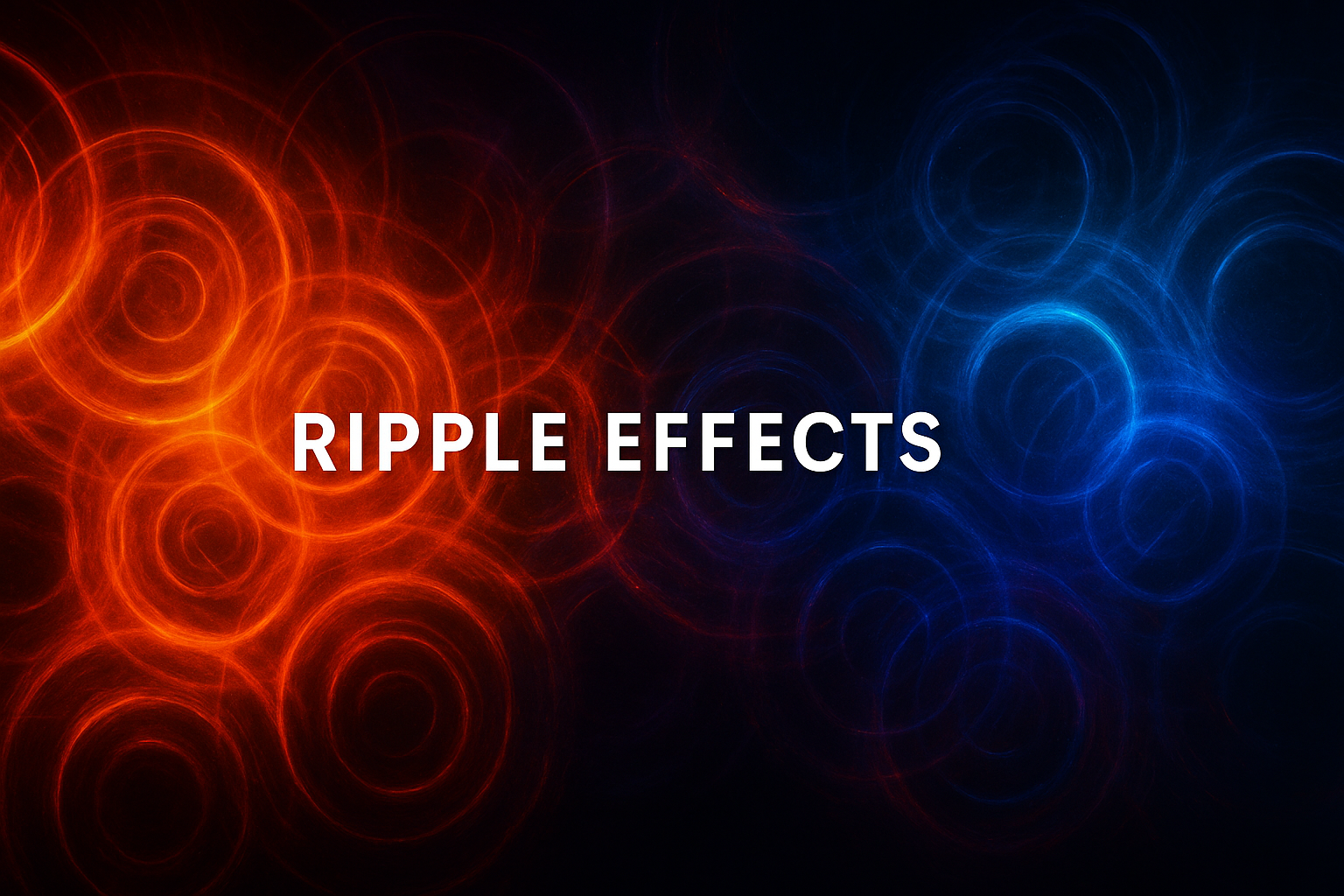 Ripple Effects: How Small Signals Shape Big Futures
Ripple Effects: How Small Signals Shape Big Futures
Location: Global (Travels from Melbourne, Aus Fees: US$20,000 in-person / US$15,000 vir
Service Type: Service Offered
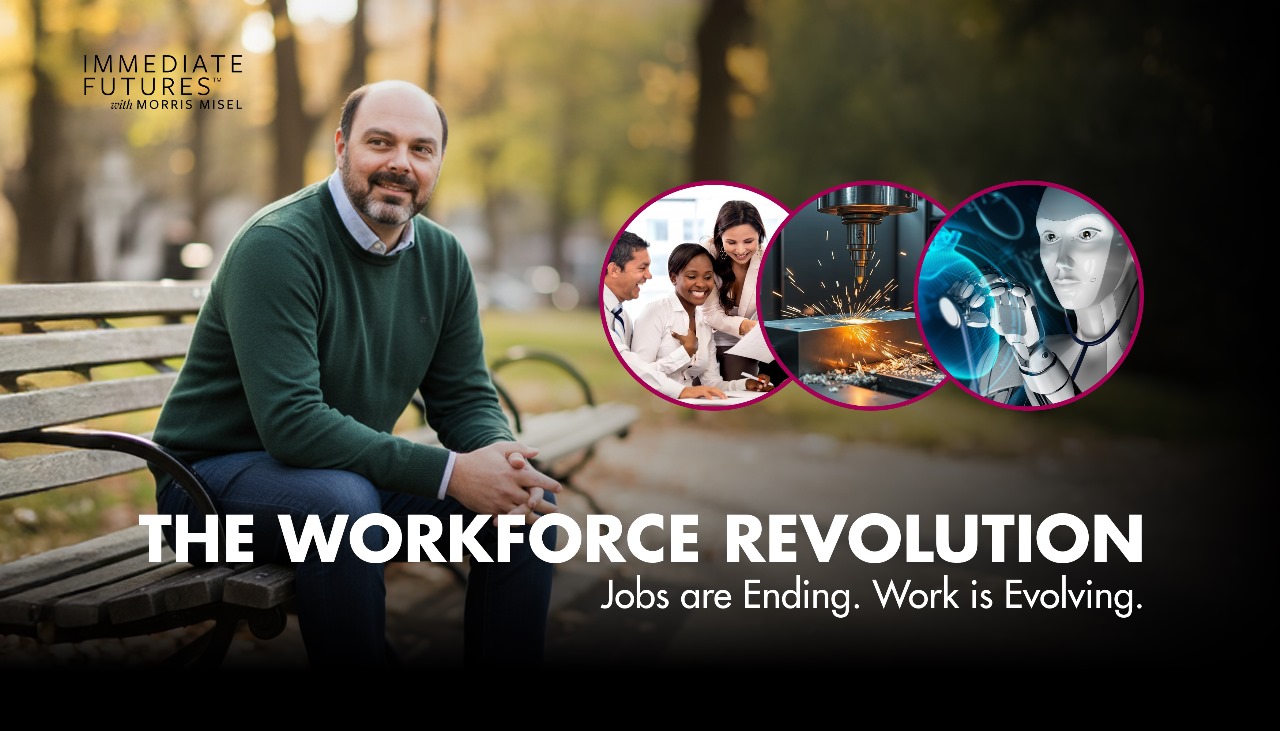 HUMAND™: The Workforce Revolution
HUMAND™: The Workforce Revolution
Location: Global (Travels from Melbourne, Aus Fees: US$20,000 in-person / US$15,000 vir
Service Type: Service Offered
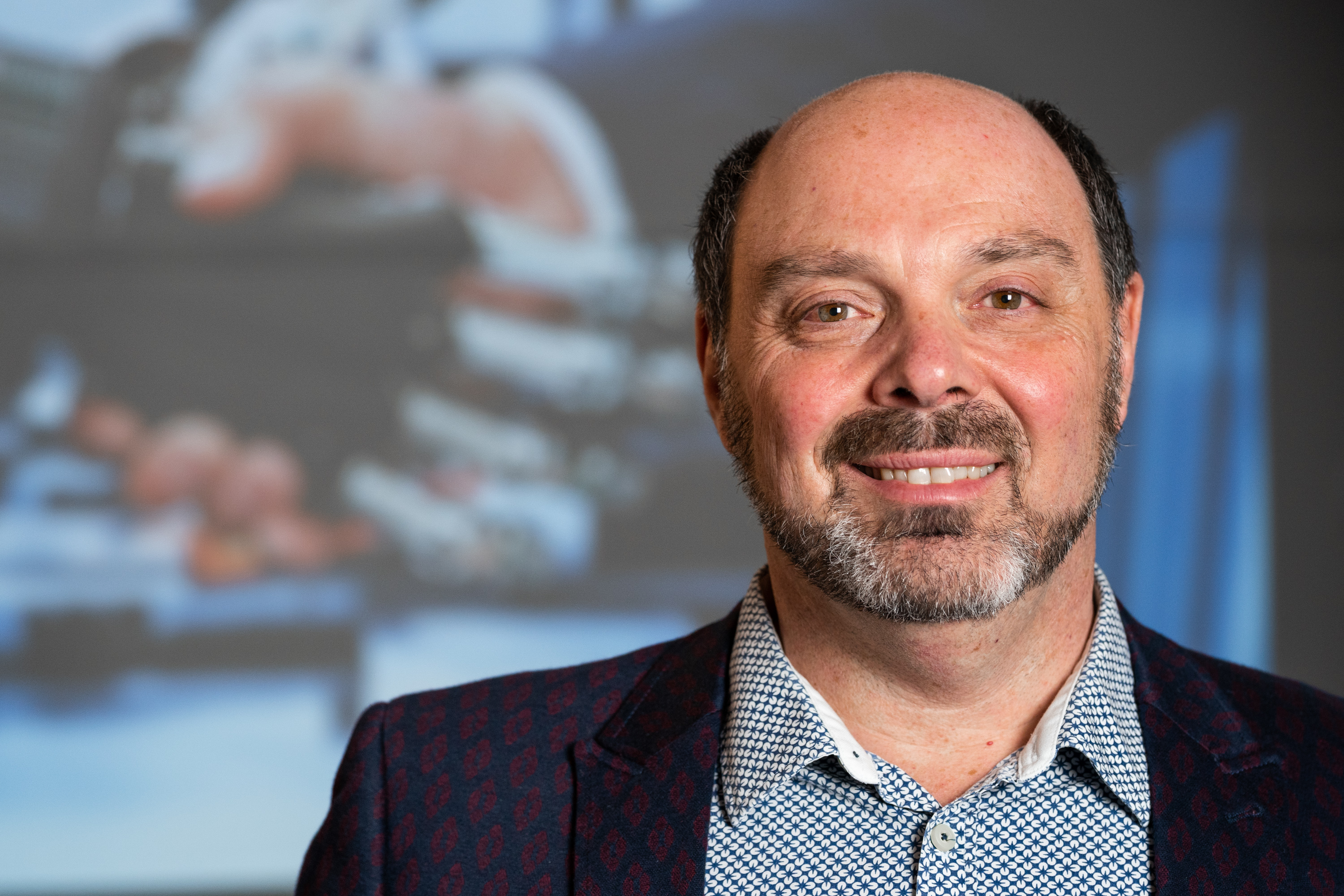 Choose Forward: Future-Ready Leadership for Uncertain Times
Choose Forward: Future-Ready Leadership for Uncertain Times
Location: Global (Travels from Melbourne, Aus Fees: Starting from $15,000 USD
Service Type: Service Offered
 The Keynote That Rewrote the Conference
The Keynote That Rewrote the Conference What is a keynote speaker? | Your Business needs a FUTURIST
What is a keynote speaker? | Your Business needs a FUTURIST {Podcast} Who Decides 2025: Global CEOs Reveal Where AI Can (and Can’t) Be Trusted to Decide
{Podcast} Who Decides 2025: Global CEOs Reveal Where AI Can (and Can’t) Be Trusted to Decide Prediction Is a Trap. Preparation Is Power.
Prediction Is a Trap. Preparation Is Power.